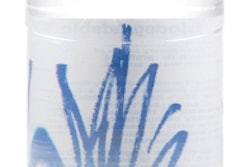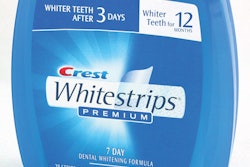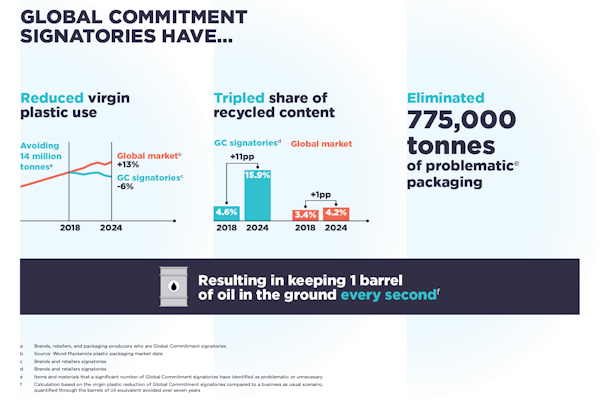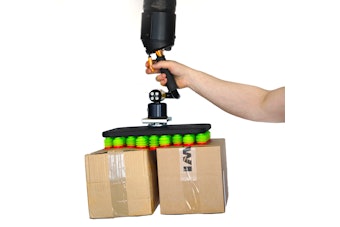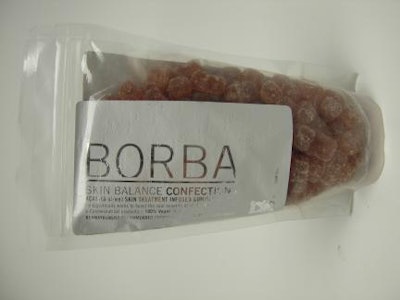
In the 1990s, the word “natural” conjured up images of burlap,
Birkenstocks, and granola; beauty, skin and hair-care products were
often packaged in a relatively uninspiring manner, utilizing earthtone
colors as a primary communication mechanism of what was inside. What
natural means today has changed significantly. Product packaging and
ingredient representations are luscious, vibrant, and indicative of the
key ingredients inside like botanicals, fruits, and florals – full of
life, energy, and succulence.
Emotionally, the meaning of “natural” has changed, too. It’s about
stewardship and our connection to nature, as much as it is about
lifestyle choices. There is a heightened awareness and concern about
what is being put onto and into our bodies and what the ramifications
are to our planet.
As a society, we are putting more effort toward incorporating natural
products and philosophies into our modern lives. Natural food,
free-trade coffee, yoga, pro-biotics in yogurt, antioxidants in colas,
heart health screenings, and an abundance of on-demand fitness programs
are fast becoming mainstream rather than a lifestyle for a select
audience. Natural is all around us, exampled in materials or
ingredients that are “from the earth,” or simply demonstrated via
aesthetic inspiration derived from nature—from building materials to
organic produce; from eco-chic fashion to guides to “green living,” and
it weaves a story that is compelling, inclusive, and thriving.
Living a natural lifestyle is appealing to consumers as a way to
balance or ground them by rejecting old ways and forging ahead with new
thinking. There is a growing environmentally conscious market segment
dubbed LOHAS (Lifestyles of Health and Sustainability), a $209 billion
U.S. marketplace for goods and services focused on health, the
environment, social justice, personal development, and sustainability.
Consumers attracted to this market are referred to as “Cultural
Creatives.”
Currently, 35 million people in the U.S. are considered LOHAS
consumers. These consumers are dedicated to planetary health and are
more than just focused on natural/organic products. They have
surrendered to it, and they have buying power to prove it. Natural
products, in this age of sustainability, are seen as premium or a new
luxury. Consumers embrace natural products because they communicate
purity, safety, protection and sophistication. Some manufacturers like
Giovanni at mass retail, and BORBA at specialty stores are conveying
this positioning through white or transparent packaging providing the
consumer with a view of the actual product, enhancing brand trust, and
building a sense of integrity. Institute Milano from the Phytopure Skin
Care line is encasing product in packaging with varying levels of
transparency utilizing clean typography.
Consumers think of products like shampoo or lotion that contain
natural, edible ingredients as good for their hair and skin, too.
CARGO’s PlantLove Botanical Lipstick, for example, is formulated from
all natural botanicals with no mineral oil or petroleum. To further
engage the consumer in the natural product positioning, Cargo’s
lipstick tube is made entirely from corn, a renewable resource, and the
outer carton is made of seeded flower paper. The carton, when
moistened, will actually sprout wild flowers. Because CARGO literally
believes that the seeds sown today affect future generations, this
cause-conscientious company is donating $2 from the sale of each
lipstick to St. Jude Children’s Research Hospital, further engaging an
already socially conscious consumer with an overt cause-marketing
avenue.
Another company that is exceeding the norm in creating eco-conscious,
fair-trade, personal care products is Pangea Organics. Its roducts
contain no artificial fragrance chemicals, and 100% of what goes into
these products is plant-based and never tested on animals. Pangea
Organics was awarded “Best Skin Care Company" at the Natural Products
Expo West 2007. Pangea understands what it means to be truly dedicated
to ethical corporate practices. This fast-growing organic skincare
company considers the entire supply chain, from the farmers to the
consumers to the final resting place. And like the CARGO Plant Love
packaging, Pangea’s packaging is made from recycled fibers with live
seeds embedded in the carton so consumers can actually plant the carton
and grow sweet basil or amaranth, rather than contributing to landfills.
With an edgy look and story-telling mystique, Korres Natural Products
is clearly advocating natural as the preferred healthful lifestyle. The
Body Butter line produced by this Greek company incorporates a
medicinal-looking vacuum package that includes an expiration date to
indicate the natural/fresh state of the product. Another product line,
Kings & Queens, relies on a compelling narrative that helps create
an emotional connection with the consumer. The brand combines cultural
significance with age-old knowledge from ancient cultural lifestyles
that harness the power of nature’s ingredients.
The sustainability movement in packaging, largely being driven by
Wal-Mart, is causing consumer packaged goods companies to rethink their
packaging strategies. Wal-Mart recently introduced a sustainable
packaging initiative that will measure its 60,000 suppliers on their
ability to develop packaging that is good for the environment. This
strategy is driving other retailers and CPGs to follow suit. The use
of recycled materials and other emerging technology is being
encouraged, and many companies are formulating products using less
water to reduce packaging sizes.
Smaller packages take up less space in a container/truck, which then
reduces the environmental impact of transportation. This practice
demonstrates that eco-mindedness can dovetail with cost savings.
Sustainable design advocate Chris Hacker is Johnson & Johnson’s
senior vice president of global design and design strategy. His quest
is to help brands go green. He advises that the following questions be
asked when developing packaging for a product:
1. Do we really need all of this?
2. Does it use renewable resources?
3. Is reuse practical and encouraged?
4. Are the product and packaging refillable, recyclable or repairable?
5. Is it made with post-consumer recycled or reclaimed materials? If so, how much?
6. Are the materials available in a less toxic form?
7. Does it come from a socially and environmentally responsible company?
8. Is it made locally?
It is apparent that Johnson & Johnson is committed to meeting
consumers’ needs today without compromising the earth’s capacity to
meet the needs of tomorrow.
Health and wellness are also intertwined and ingrained in what it means
to be natural. Often, there are concerns regarding the efficacy of
products that have been on the shelf due to florescent lighting and
stock rotation. One brand has taken it a big leap forward, addressing
this concern by creating an innovative design that puts more control in
the consumer’s hands. M-13 Functional Drink combines natural medicinal
and non-medicinal ingredients with 100% juice to produce what the
company refers to as a premium life-assisting beverage. M-13 is created
with high levels of herbal extracts and vitamins, allowing the consumer
to control dosing through the dosing cap.
Another customized innovation coming to the market is VIZcap™, a patent
pending screw cap that allows consumers to release vitamins and other
supplements into water just before they drink it. This capability is
becoming an important concept to consumers because they understand that
health drinks lose potency while sitting on store shelves.
Consumers
simply remove the tamper-proof seal; push the plunger and the
ingredients release into the water. This proprietary cap will fit
current standard bottle sizes. By being able to take an active role in
mixing the beverage at its maximum potency, consumers are empowered by
this unique experience of high performance and design.
Another company integrating natural technology in beverages as well as
confections is BORBA. BORBA, a beauty brand sold at Sephora, includes
beauty beverages and gummy candy that contain next generation
crystalline technology designed to hydrate the skin from the inside out
using antioxidants and other skin renewing ingredients. Increased
acceptance of beverages as the entry point for consumers into the
health and wellness movement is due to on-the-go convenience and all in
one packed power that consumers demand.
What’s next for natural in beauty care and health and wellness? An
unprecedented number of initiatives are headed for mainstream
assimilation. One to consider is Biodynamics, the next phase of
organic. It is a method of sustainable organic farming that emphasizes
the relationship between soil, plants, animals, and the lunar calendar
to determine planting, fertilizing, and harvesting times. New
ingredient combinations also will be key in reflecting consumers’
evolving and sophisticated palettes. The influence of Ayurveda is also
on the rise. Natural health pioneer Dr. Deepak Chopra supports the
ancient holistic healing system, and it encompasses herbs, tea,
massage, breathing, food combinations, and the environment for energy
balance.
Increased awareness and acceptance of “good cultures,” “living
cultures,” good germs, pro-biotics versus antibiotics, and inclusion of
pre-biotics are potential innovation platforms. Personal control and
customization will also continue to be a key driver. Companies that are
responsive and customer-driven can consider these ideas when developing
new products that offer consumers higher-order benefits, which will
help them grow and gain a competitive advantage in the natural
marketplace.
Natural is not a fad. A clear segment of consumers are intrigued and
attracted to natural products and packaging. Mintel, a media
intelligence provider, recently reported that 32% of U.S. consumers say
they purchase organic products “as often as possible” and that
two-thirds of U.S. consumers note that they would buy more organics if
the product cost less.
Natural provides an excellent opportunity to create sound consumer
brand loyalty and is proving to be a strong point-of-purchase
differentiation on shelf. It is a way for companies to reflect
consumers’ elevated values and principles through their overall
business proposition and their products at shelf. Natural is a trend
with a stable market opportunity that is here to stay. It will have
lasting, positive implications for beauty care and health and wellness
products, and for the consumers who use them.
The author, Valerie Jacobs, has 15 years of experience in marketing
communications and design, and a Masters of Design in fashion design
and product development from the University of Cincinnati School of
Design, Architecture, Art and Planning.




